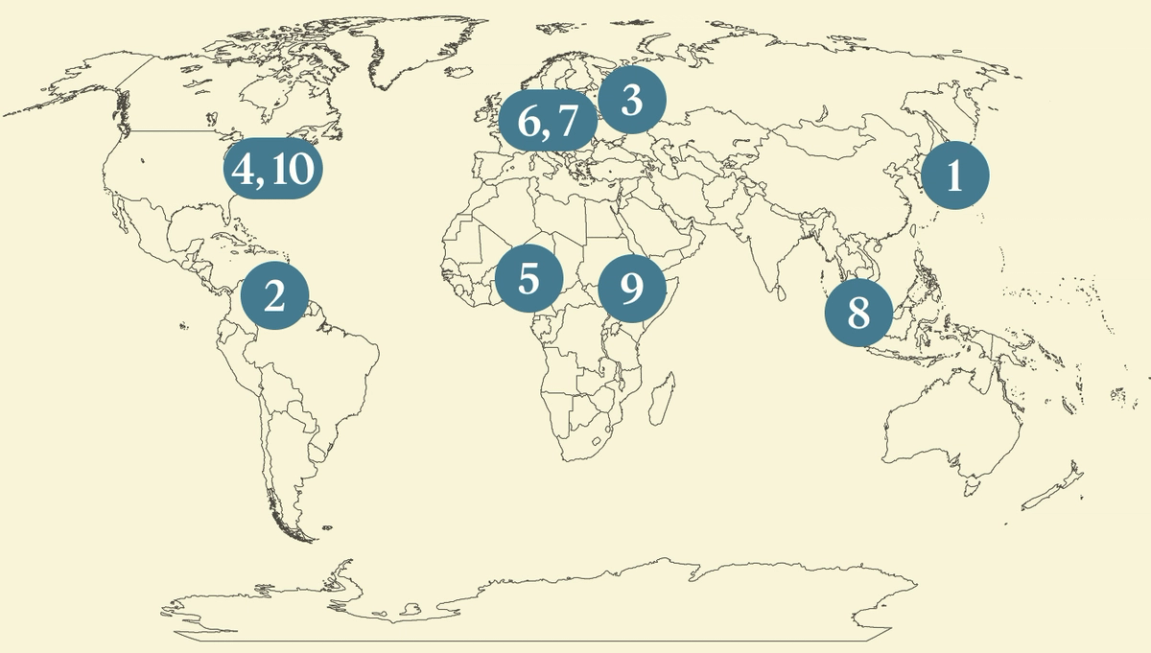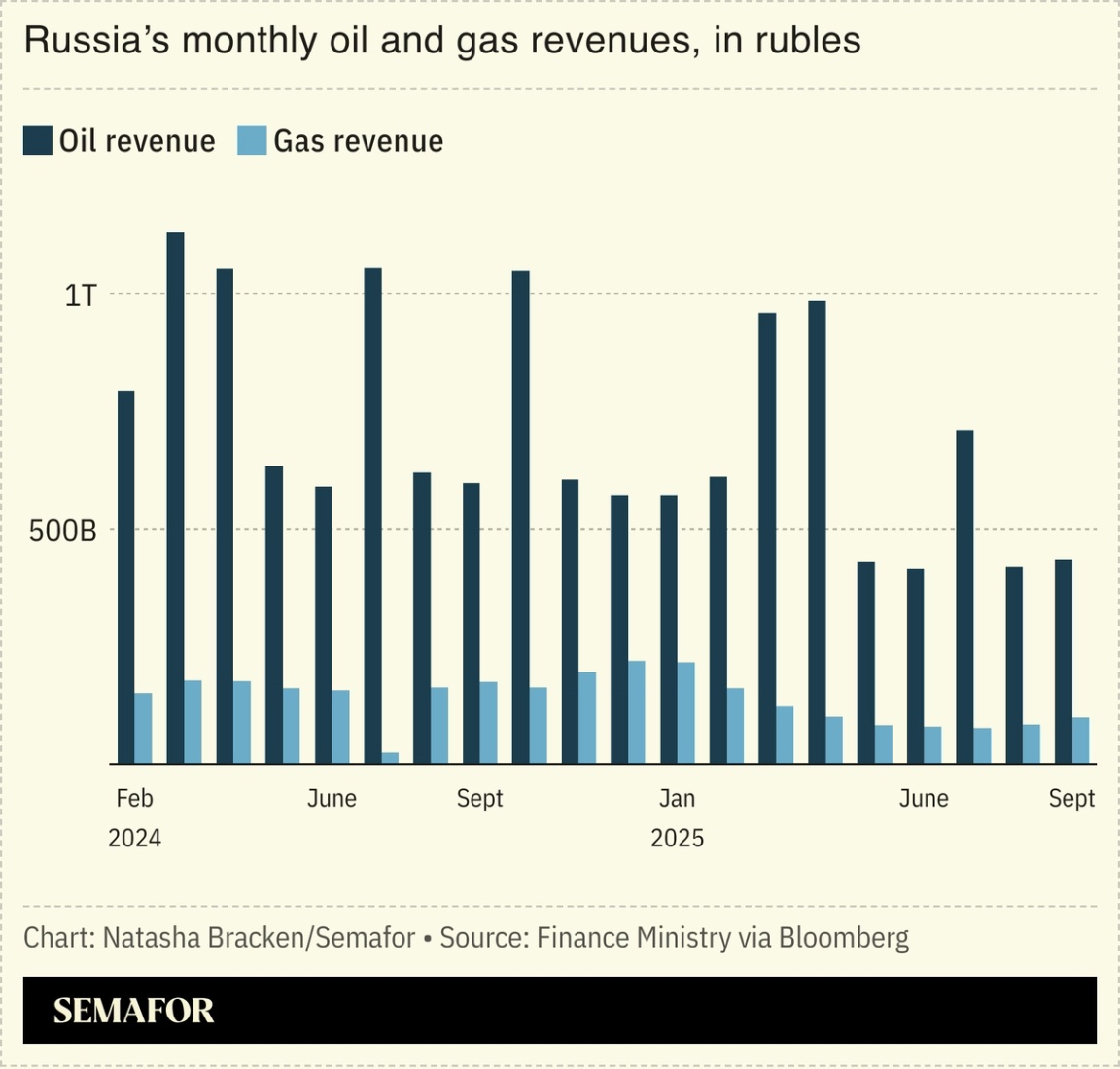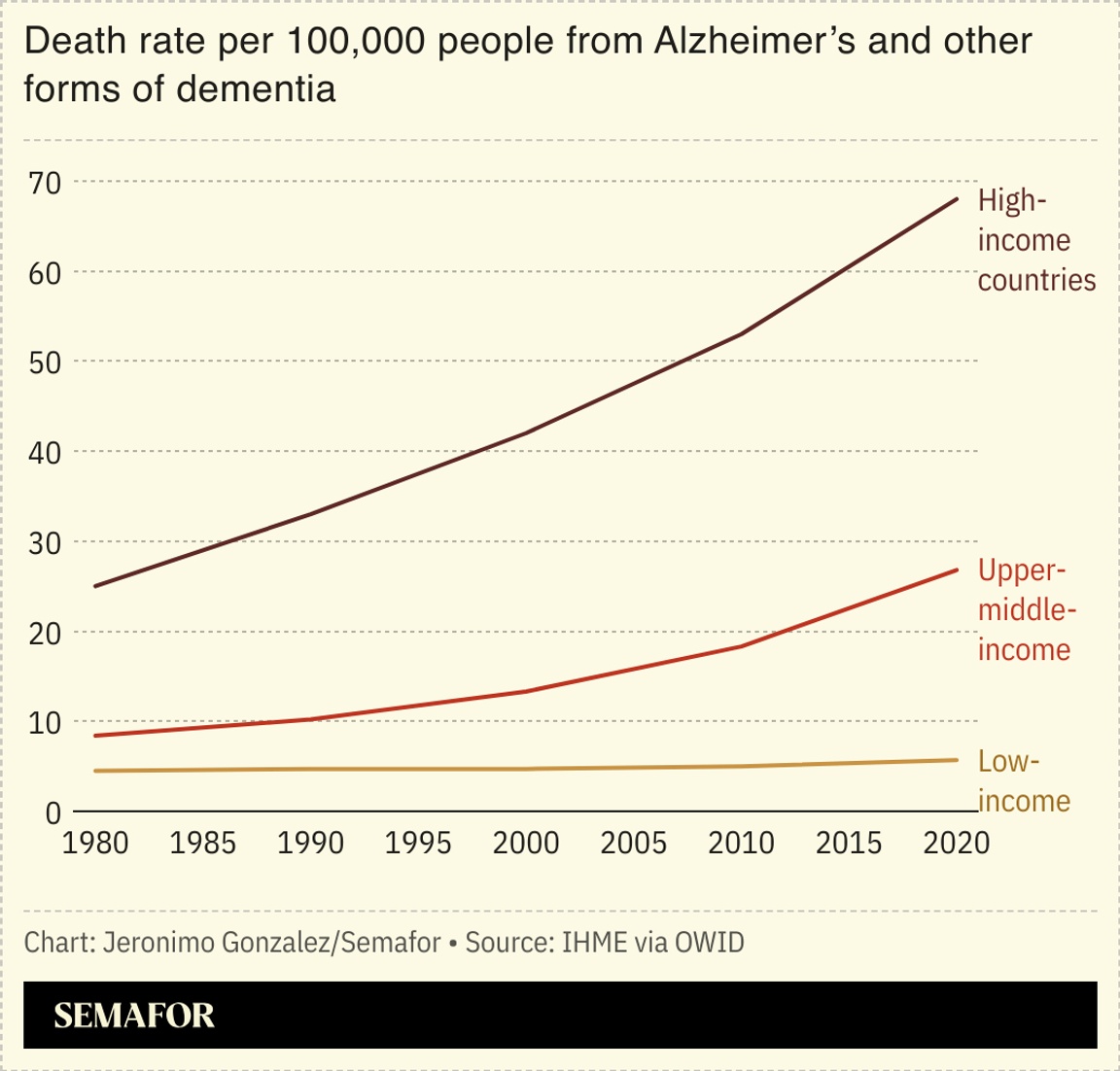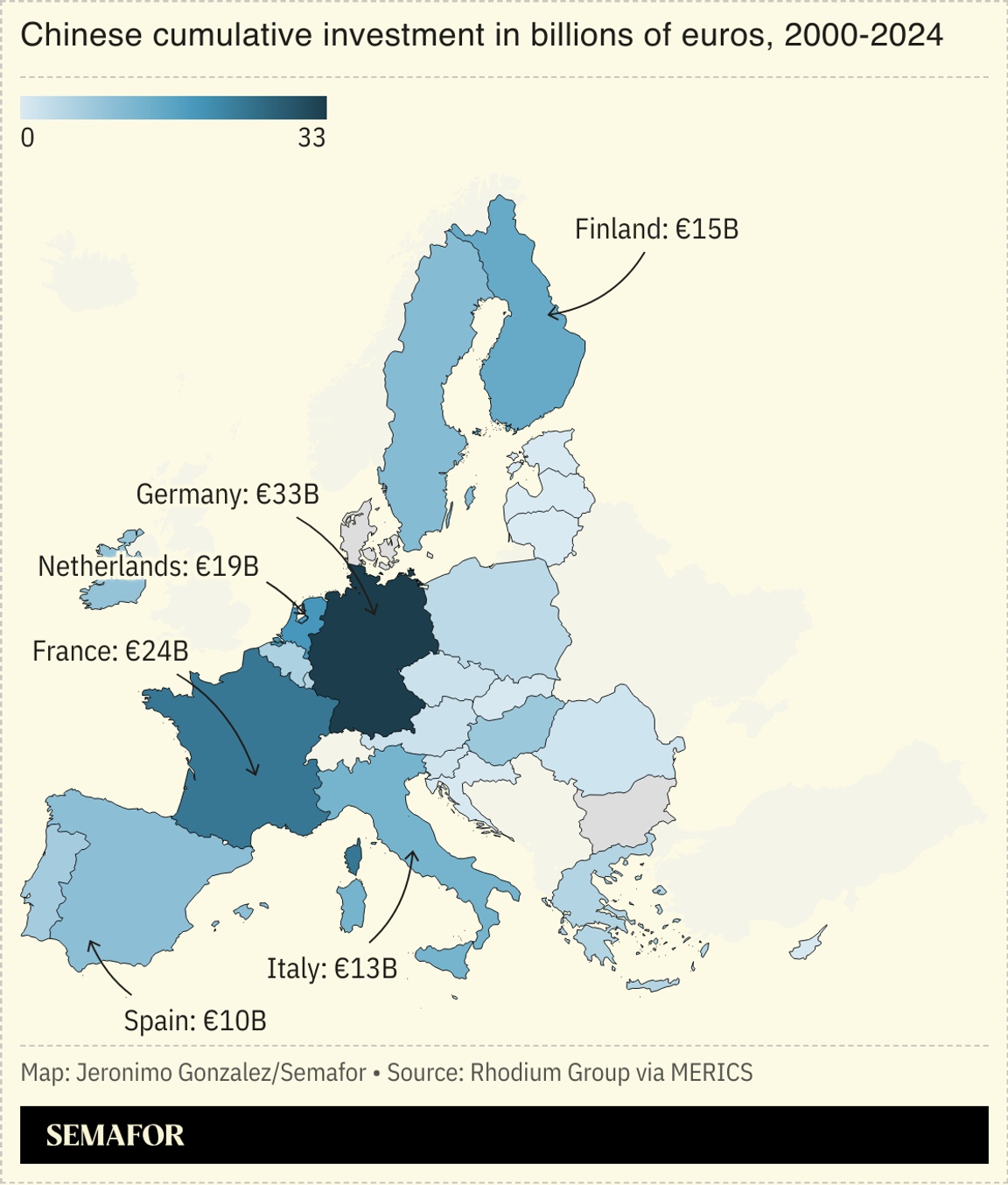| | Caracas hits back after Washington links Maduro to terrorism, the US Department of Defense investiga͏ ͏ ͏ ͏ ͏ ͏ |
| |  | Flagship |  |
| |
|
The World Today |  - Japan, China’s Trump ‘wins’
- US links Maduro to terror
- Russian oil revenue falls
- US DoD to probe Dems
- Nigeria to boost police
- Ozempic’s dementia failure
- EU to slow China financing
- Malaysia social media ban
- Ancient volcano reawakens
- Ozone layer shrinking
 A ‘hilarious, and at times disturbing,’ podcast about AI hype. |
|
Japan, China seek wins in bitter row |
 Evelyn Hockstein/File Photo/Reuters Evelyn Hockstein/File Photo/ReutersUS President Donald Trump called Japan’s leader shortly after speaking with China’s, discussions that the Asian rivals each framed as victories in their row. Beijing has railed against remarks by Japan’s premier suggesting Tokyo could intervene militarily were China to invade Taiwan. Though Japan is a US ally and Chinese officials and propagandists have suggested the Japanese leader should be beheaded and called her an “evil witch,” the White House has been largely silent over the spat. Chinese state media was quick to declare the Trump call with Xi Jinping “a tactical win,” The Washington Post said, while Japan’s premier said Trump called her “a very close friend.” Either way, the dispute is “unlikely to be resolved soon,” CNBC noted. |
|
Venezuela-US tensions deepen |
 Petty Officer 1st Class Jerome Johnson/US Navy/Handout via Reuters Petty Officer 1st Class Jerome Johnson/US Navy/Handout via ReutersCaracas said Washington’s decision to designate the Cartel de los Soles — an amorphous group the US says is helmed by Venezuelan President Nicolás Maduro — as a terrorist organization is “ridiculous,” exacerbating tensions between the countries. The designation marks an escalation in Washington’s campaign against Caracas by making it a crime to provide money or services to the heads of the Venezuelan state. The move comes as the US increases its military presence in the Southern Caribbean, including a visit yesterday by the chairman of the Joint Chiefs of Staff to the region. While the White House maintains the deployment is part of anti drug-smuggling operations, airlines have recently cancelled flights to Venezuela over fears of a potential US strike. |
|
Russia’s worsening economic woes |
 Russia’s oil and gas revenues this month are expected to fall 35% year-on-year, yet another blow to its war economy. Falling oil prices and a strengthening ruble are behind the decline in the Kremlin’s largest income stream, which provides a quarter of the federal budget, Reuters reported. Despite sanctions, Russia’s economy has grown, fueled mainly by military spending on the Ukraine war, but that appears to be leveling off. Russian firms are struggling to pay workers on time, a report found, while the government’s borrowing is spiraling, and President Vladimir Putin is raising taxes to boost cash flow. “Putin and ordinary Russians will face harder choices… between guns and butter,” The Associated Press said. |
|
US to investigate lawmaker over video |
 Rebecca Noble/File Photo/Reuters Rebecca Noble/File Photo/ReutersThe US Defense Department opened an investigation into a top lawmaker and military veteran who appeared in a video telling serving soldiers they must not follow illegal orders. Sen. Mark Kelly was among six Democrats who took part in last week’s broadcast, which prompted US President Donald Trump to call for the group to be prosecuted for sedition. Kelly said in a statement he would not be intimidated. The threat of a court martial against the former navy captain comes after two cases against a former FBI director and the New York attorney general — high-profile critics of Trump — were dismissed. Though the decision can be appealed, “it could recast Trump’s fraught effort to exact retribution on his foes,” CNN said. |
|
Nigeria to beef up police force |
 Abdullahi Dare Akogun/Reuters Abdullahi Dare Akogun/ReutersNigeria’s President Bola Tinubu said his country would hire tens of thousands of police officers in order to quell a surge in violence. Tinubu’s announcement comes just days after gunmen abducted hundreds of children from a Catholic school in northern Nigeria. Abuja has faced pressure from US President Donald Trump to do more to protect its Christian population, with Washington recently floating tariff threats should Nigeria fail to stem the unrest. Analysts worry that Washington’s threats may actually be fueling an uptick in kidnappings as criminal groups look to extort ransom from Nigerian authorities eager to make problems disappear quickly. Meanwhile, millions displaced from violence-wracked regions of the country face unprecedented levels of hunger, the World Food Programme warned. |
|
Ozempic does not slow Alzheimer’s |
 Ozempic does not slow Alzheimer’s progression, its manufacturer Novo Nordisk said following a two-year study. The popular drug reduces body weight by on average around 15% in obese patients, and early data suggested it may also slow the progress of some brain conditions, along with cancer, heart disease, liver, and kidney problems. The question had always been how much those changes were consequences of reducing obesity, or a confounding effect: Patients who take Ozempic might be more health-conscious. There has been a tempering of some of the more exciting claims — it also failed to slow neurodegeneration in Parkinson’s patients — but the drugs’ impact on cardiovascular and kidney problems seems more robust. Novo’s shares fell 6% on the news. |
|
EU seeks to counter China tech prowess |
 The European Union is planning to tighten its foreign investment rules in order to protect itself from Chinese dominance. Under the new guidelines, Chinese firms investing in the bloc would be forced to hire local workers and to transfer technology and know-how to domestic firms, a remarkable symbolic concession of how rapidly Chinese firms have overtaken European ones in certain sectors. Brussels’ move comes as investment from the world’s second-largest economy soars in Europe: Foreign direct investment flows from China to the EU rose 80% in 2024 compared to the previous year, with CATL, the world’s biggest battery manufacturer, leading the charge. However, some experts question whether Brussels has the required unity among member states to drive through the changes. |
|
Malaysia to ban social media for youth |
 Malaysia said it would ban under-16s from social media, following the example of Australia. Kuala Lumpur said the measures were intended to protect children from bullying, scams, and abuse. Social media’s impact on young people, although scientifically contested, has become a growing concern worldwide: Several tech giants face lawsuits in the US, while the UK has introduced mandatory age-gating for sites with adult content, and several European countries are jointly testing an age verification app. Australia is going the furthest, banning all social media for under-16s; platforms are expected to deactivate younger users’ accounts next month, and regulators around the world are watching it closely, Al Jazeera reported, as — presumably — are providers of VPNs. |
|
Ethiopia volcano in historic eruption |
 NASA/Handout via Reuters. NASA/Handout via Reuters.A volcano in Ethiopia erupted for the first time in recorded history. Hayli Gubbi was believed to be dormant, with no evidence of an eruption in the Holocene period, stretching back 12,000 years. The blast sent a column of smoke nine miles, or 14.5 kilometers, into the sky and coated the landscape with ash, which could cause problems for local farmers. The blast is a reminder of how bad humans are at predicting seismic activity: One expert told Scientific American that “a volcano can still have an eruption even if it hasn’t had one in… 10,000 years.” Earthquakes are similarly mysterious, although a recent study using AI to predict aftershocks of big quakes apparently showed some success. |
|
 Start every weekday smarter. The Quartz Daily Brief delivers the most important and intriguing global business and economy news straight to your inbox — fast, clear, and essential for navigating a changing world. Subscribe now. |
|
|